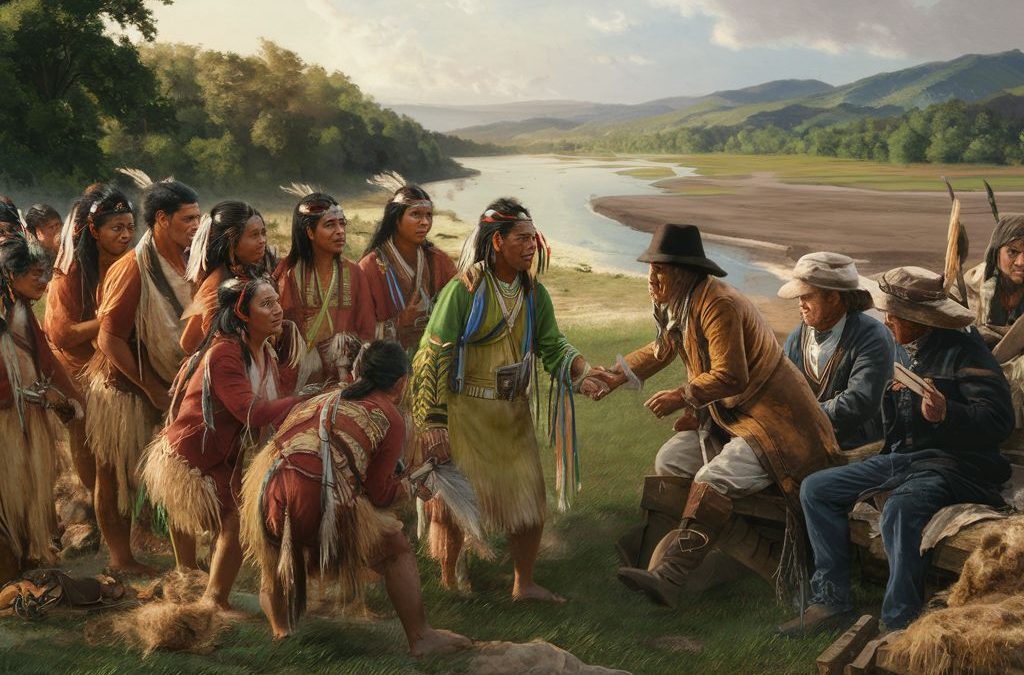Long before the bustling city of Tacoma rose on the shores of Puget Sound, the land belonged to the Puyallup Tribe. Their history is deeply intertwined with the landscape, their culture rich with traditions passed down for generations. This article explores the Puyallup Tribe, the original inhabitants of Tacoma, delving into their past, the challenges they faced, and their enduring presence.
Stewards of the Land: A Rich History
The Puyallup Tribe, also known as the spuyaləpabš in their Lushootseed language, translates to “people of the bend at the bottom of the river.” This aptly describes their traditional territory, encompassing the area around the Puyallup River delta, which now includes present-day Tacoma.
For thousands of years, the Puyallup people thrived in this bountiful environment. They were skilled fishermen, hunters, and gatherers, their lives intricately connected to the rhythm of the seasons. Cedar trees provided not only shelter but also material for canoes, tools, and ceremonial objects. Salmon, the lifeblood of the Pacific Northwest, played a central role in their diet and spirituality.
A Culture Steeped in Tradition
Puyallup culture was rich with storytelling, intricate basket weaving, and powerful spiritual beliefs. Winter nights were filled with tales passed down through generations, detailing the origins of the world and the interconnectedness of all living things. Cedar bark baskets, meticulously crafted by women, served not only utilitarian purposes but also held deep cultural significance.
Spiritual practices were central to Puyallup life. Ceremonies marked important life passages, honored ancestors, and celebrated the bounty of the land. Shamans played a vital role in healing and connecting with the spirit world.
The Arrival of Settlers and the Erosion of a Way of Life
European settlement in the mid-1800s marked a turning point for the Puyallup Tribe. The Treaty of Medicine Creek in 1854 forced the tribe to cede a significant portion of their ancestral lands in exchange for a reservation south of present-day Tacoma. This treaty, based on a misunderstanding of land ownership between the two cultures, drastically impacted the Puyallup way of life.
Challenges and Resilience
Life on the reservation was difficult. Traditional food sources became scarce, and government policies aimed at assimilation eroded cultural practices. Despite these hardships, the Puyallup Tribe never lost their spirit of resilience.
The Puyallup Tribe Today: A Look at their Continuing Legacy
The Puyallup Tribe of Indians is a federally recognized tribe with approximately 4,000 members. The tribe has worked tirelessly to preserve their culture and language. The Puyallup Tribal Language Program is actively revitalizing Lushootseed, ensuring its survival for future generations.
Economic Development and Cultural Preservation
The Puyallup Tribe has taken significant strides towards economic self-sufficiency. Tribal-owned enterprises, including casinos and fisheries, provide employment opportunities and contribute to the local economy.
The tribe actively shares its culture with the wider community. The Puyallup Tribal Center offers cultural demonstrations, educational programs, and powwows, vibrant celebrations of tribal identity. The tribe is also working to reclaim traditional lands, securing access to sacred sites and resources.
Looking Forward: A City Acknowledging its Indigenous Roots
The city of Tacoma is increasingly acknowledging its history with the Puyallup Tribe. Public art installations honor the tribe’s heritage, and educational initiatives are fostering a deeper understanding of their contributions to the region.
Conclusion: A Shared Future
The story of the Puyallup Tribe is one of resilience, cultural richness, and adaptation. While the challenges they faced were significant, their enduring presence and commitment to their traditions are an inspiration. As Tacoma continues to grow, a stronger understanding and appreciation for the Puyallup Tribe, the original inhabitants of the land, will pave the way for a more inclusive and respectful future.
Further Exploration:
- Visit the Puyallup Tribal website (https://www.puyalluptribe-nsn.gov/) to learn more about their history, culture, and current endeavors.
- Explore the Puyallup Tribal Center to experience cultural demonstrations and educational programs.
- Attend a Puyallup powwow to witness the vibrant celebration of tribal identity.
Hey there! I'm Paul Carter, a lifelong Tacoma resident. I've seen Tacoma change from a sleepy small town to a thriving modern city. I love to explore the unique places and stories that Tacoma has to offer. This website is my love letter to my hometown, sharing its hidden gems and insider tips. So, come explore Tacoma with a true local!

